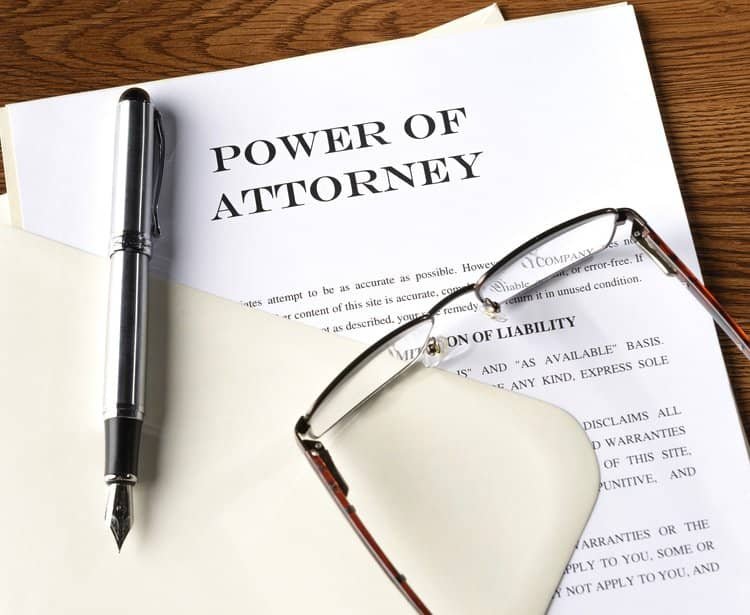
THIENEL LAW BLOG
What Does an Estate Administration Attorney Do?
An estate administration attorney guides a personal representative through each step of the estate administration process. Because a personal representative can be held liable for negligence and other errors made while administering the estate, it is important to have an attorney to provide legal advice and support.
What Responsibilities Do Virginia Guardians and Conservators Have?
When a minor child or an incapacitated adult is appointed a court-ordered guardian and conservator, the person appointed by the court has a duty and legal responsibility to act in the best interests of the protected person or ward (minor child or incapacitated adult). It can be a little overwhelming if you are suddenly appointed by the court to care for another person and manage that person’s property and affairs.
Do You Know How to Use a Durable Power of Attorney?
Have you been named as the Attorney-in-Fact or Agent of a Durable Power of Attorney? If so, it is very important that you understand the powers and duties that have been granted to you by the Principal. It is equally important that you understand how and when to use the powers granted to you by the Durable Power of Attorney. Our Virginia estate-planning attorney assists individuals in learning how to use a Durable Power of Attorney in addition to assisting individuals as they create these documents as part of their estate plan.
What are the fiduciary duties of a DC trustee?
When you appoint a trustee, you are placing a great deal of confidence in this person to manage the trust assets. A trustee holds a great deal of power because the trustee holds legal title to the property within the trust. It is very important that a trustee understands his fiduciary duties under the terms of the trust and Washington DC trustee laws. A DC trust administration attorney can assist trustees in understanding their fiduciary duties as a trustee.
How to Avoid Conservatorship and Guardianship in Virginia
At some point in many people’s lives, they become unable to watch over their personal or financial care. In these situations, it may become necessary for someone to step in and assume certain responsibilities of care for that person. Some states call them guardians, others conservators. These individuals are charged with ensuring an incapacitated person’s medical, financial and other needs are met. With proper planning with an estate-planning attorney, guardianships can be avoided.
What are the Advantages of a Maryland Trust?
When it comes to estate-planning, the two terms that generally come to mind are wills and trusts. We know we should have one or the other, or perhaps both. For many people, it can be difficult to determine what the best course of action will be to protect their assets. Additionally, because Maryland updated its law on trusts a few years ago, incorporating many provisions from the Uniform Probate Code, it may be necessary for those people who have a Maryland trust to reconsider their options.
What Estate-Planning Documents Do You Need in Place When Your Child Turns 18?
Think estate-planning is only for the elderly? Everyone needs help at any stage of the game. In fact, you may think your job is pretty much done when your child turns 18 -- that your role has shifted from director to supporting actor. Your child goes off to college, and you think about how you could repurpose her bedroom in a few years when she is setting up her own place. For 18 years, you have been able to watch over her, call her doctors, talk to her teachers, and do your job as an involved parent. Then there is a problem with her financial aid, and you quickly discover that the university cannot answer your questions or let you help fix the problem. The good news is that there are estate documents that could give you the legal authority to step in when your college-age child needs your help, but the bad news is that you don’t have those documents.
What Happens to My Company When I Die?
One of the biggest questions a lot of business owners have concerns the future of their company if they happen to pass away. What happens to a business after the death of the owner depends on the structure of the business.
11 Things You Didn't Know About Guardianship in Virginia
In the Commonwealth of Virginia, obtaining a guardianship is a complex undertaking and one you should not attempt without a Virginia estate planning attorney to guide you through the process. Navigating the intricate waters of Virginia guardianships requires the knowledge and skill of an estate planning attorney - and here’s why: what you don’t know can hurt you.
Why Do I Need an Exit Strategy for My Business?
For most, the basic purpose of owning and operating a business is to make a profit. Not only is selling a business an opportunity to maximize your profits, it can sometimes be the most the most profitable business decision. Whether you are planning on selling your business within its first few years, first few decades, or never at all – it is always a good idea to have a comprehensive exit strategy, so the taxpaying business can plan for any situation that may arise down the road.
When Should I Consider Guardianship?
If you have an aging loved one who is starting to behave in an uncharacteristic manner such that you are worried about his well-being, you might be thinking about how to help him. You are mulling over whether you should have him live with you, set up assistance for him at his home, or talk with a lawyer with guardianship experience about legal options to safeguard him.
What is a Power of Attorney?
In its simplest form, a power of attorney is a legal document that gives another person the authority to takes certain actions on your behalf. Every state allows power of attorney documents, but each state follows its own rules for creating and using them. Enlisting the help of an attorney that is experienced in dealing with powers of attorney can save you money and heartaches in the long run.
How Does Probate Work?
The courts in Virginia, Maryland, and the District of Columbia (DC) that handle probate cases primarily deal with the administration of an estate after a person dies. They also deal with the property of minors and incapacitated adults, as well as trusts and wills. If you are dealing with probate in these areas, you may be asking the question, how does probate work?













